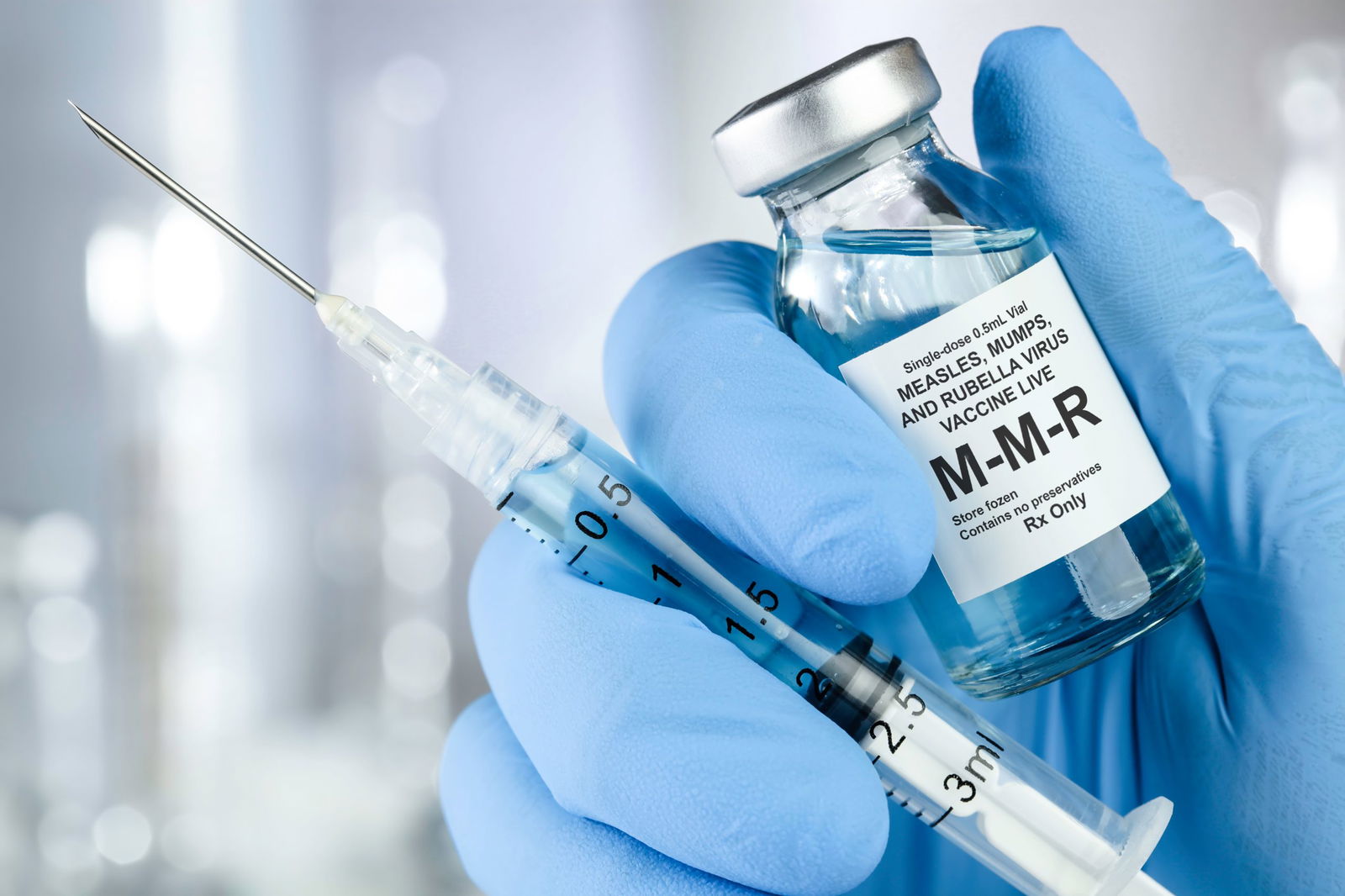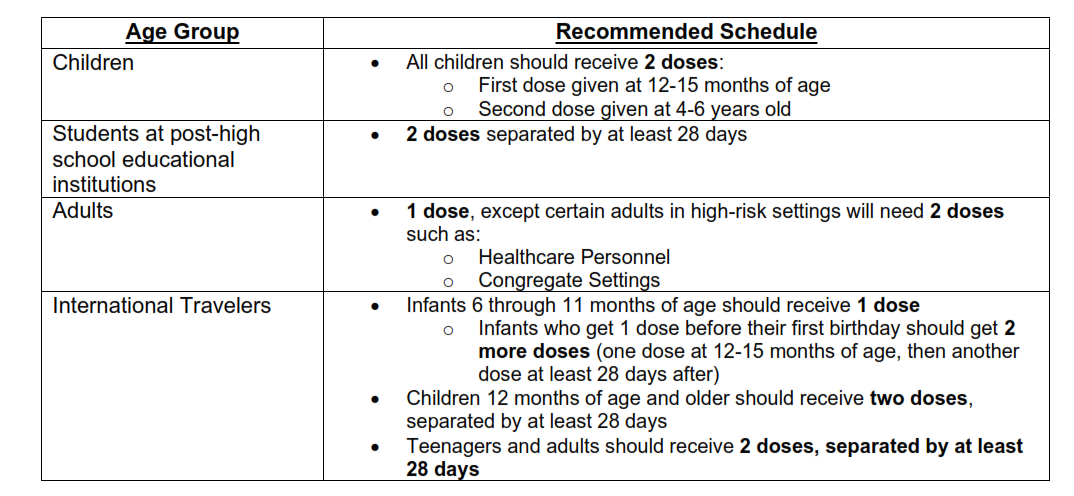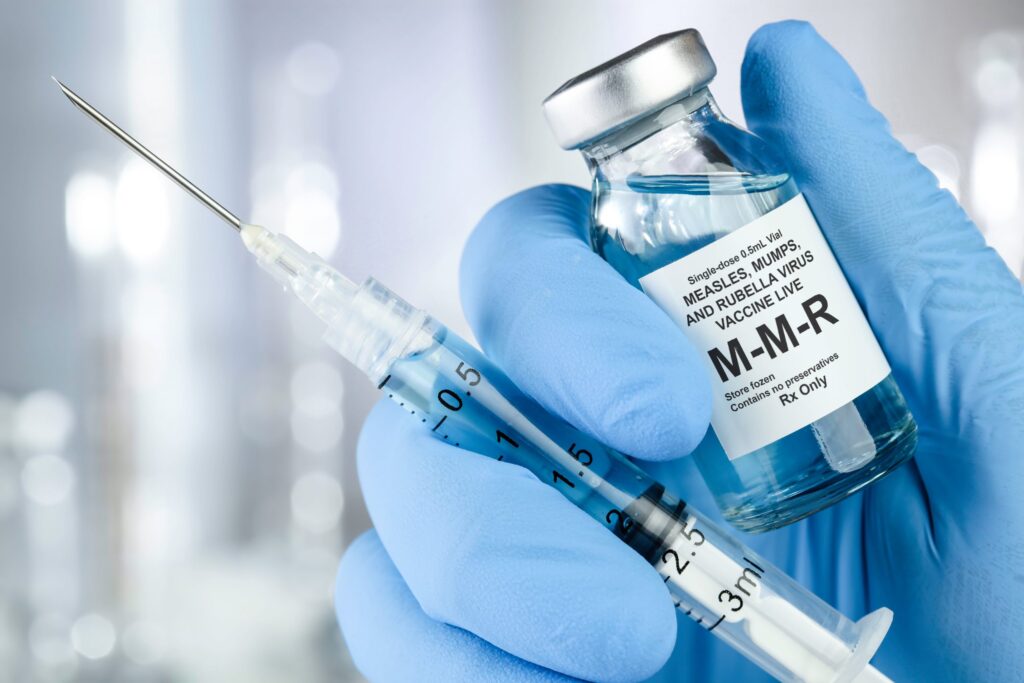
(CHCC) — The Commonwealth Healthcare Corporation is actively monitoring the measles outbreak in the U.S. and advising community members to take preventive measures against the infectious disease. Measles is a highly contagious and spreads through the air when an infected person coughs or sneezes.
While the CNMI has not had any recent outbreaks or reported cases of measles, CHCC is reminding the community that measles can be brought in when residents or travelers are exposed overseas and enter the Commonwealth. The Centers for Disease Control and Prevention has reported that declines in measles vaccinations globally have increased the risk of larger measles outbreaks worldwide, including the mainland United States. As of Feb. 25, 2025, there were 124 cases of measles reported in the state of Texas with one death of an unvaccinated child. Additionally, 8 other states have confirmed cases of measles.
Your best protection against measles is vaccinations. The CDC recommends that people get the MMR (Measles, Mumps, and Rubella) vaccine. The vaccine recommendation is as follows:

Residents should contact their primary care providers or clinics for vaccinations.
Community members can also contact the CHCC Immunization Program at (670) 236-8745, open Monday to Saturday, 7:30 a.m. to 4:30 p.m. for inquiries on their vaccination status or for options in accessing vaccine provider locations.
The MMR and other vaccines are available to children ages 0-18 years who have Medicaid, or no insurance at no-cost to families through the CHCC Immunization Clinic, Children’s Clinic, Rota Health Center, and Tinian Health Center.
Vaccines are also available through the following CNMI provider locations: Medical Associates of the Pacific, Marianas Medical Center, Kagman Isla Community Health, Southern Isla Community Health, Tinian Isla Community Health, and Brabu Pharmacy. Please contact these locations for their vaccine availability and eligibility requirements.
Measles can cause serious health complications and may result in death, especially in children under five years of age and in infants under one year of age, who are too young to be vaccinated against the disease. According to the Centers for Disease Control and Prevention, one out of every 20 children with measles gets pneumonia, and one out of 1000 develops encephalitis (swelling of the brain). Nearly one to three out of 1,000 children who become infected with measles will die from respiratory and neurologic complications.
Symptoms of a measles infection include the following:
7–14 days after a measles infection: first symptoms show Measles symptoms appear 7 to 14 days after contact with the virus. Measles typically begins with:
• High fever (may spike to more than 104°)
• Cough
• Runny nose
• Red, watery eyes
2–3 days after symptoms begin: spots inside mouth
• Tiny white spots (Koplik spots) may appear inside the mouth two to three days after symptoms begin.
3–5 days after symptoms begin: measles rash
• Measles rash appears 3 to 5 days after the first symptoms. It usually begins as flat red spots that appear on the face at the hairline. They then spread downward to the neck, trunk, arms, legs, and feet.
• Small raised bumps may also appear on top of the flat red spots.
• The spots may become joined together as they spread from the head to the rest of the body.
• When the rash appears, a person’s fever may spike to more than 104° Fahrenheit.
If you suspect a measles infection, immediately isolate yourself at home, wear a mask, and contact your healthcare provider right away; inform them of your suspected measles case before going to the clinic so they can take appropriate precautions, and do not go to work, school, or public places until further guidance from your doctor.
Key actions to take:
• Isolate yourself. Stay at home and separate yourself from others to prevent spreading the virus.
• Wear a mask. Put on a mask when you need to leave your home.
• Contact your healthcare provider. Call your doctor immediately and inform them about your suspected measles case.
• Follow healthcare instructions. A healthcare professional will advise you on further steps, including potential testing and isolation procedures.
More information about measles is available at https://www.cdc.gov/measles/signs- symptoms/index.html/.
CHCC would like to thank the CNMI community, especially parents and caregivers for doing your part to protect our children and community members against this serious health threat.
Follow @cnmichcc on Facebook, Instagram, and Twitter; visit https://www.chcc.health; or call (670) 234-8950.











